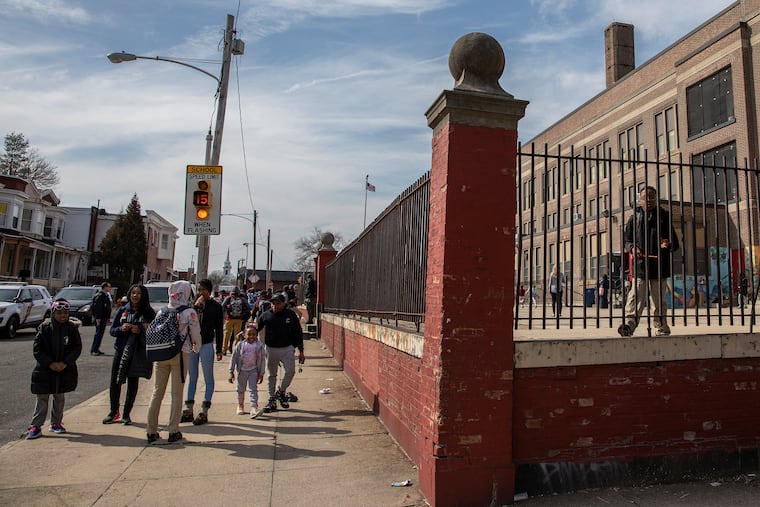Philly teachers need more support and respect to stay in their jobs | Opinion
It’s not enough just to recruit more teachers. They have to be treated in ways that make them want to stay.

On Friday, Superintendent William R. Hite Jr. tweeted a hiring call-out: “Spread the word — we are hiring teachers now. Anyone who is interested should visit teachinphilly.com to learn more and apply.”
The School District of Philadelphia does need more teachers. An Inquirer investigation published in April 2019 found that 26 district schools had lost at least 25% of their teachers for four years straight, or lost more than one-third in each of the last two school years. But it’s not enough just to recruit more people. If some important changes don’t happen within the district and individual schools, the teachers who apply and are hired won’t necessarily stay or achieve success.
Teachers have always faced a complex task, but the job today is harder than ever. Not only have rigorous national standards added pressure to improve student performance, but classrooms must also support an increasingly diverse student population with a wide range of backgrounds and learning abilities.
Workplace conditions, including instructional resources, facilities, planning time, collegial relationships, vision of school leaders, and school culture directly impact what teachers can accomplish in the classroom. Workplace conditions also have a significant impact on teacher retention. In fact, studies have shown that the conditions under which teachers work have a bigger impact on retention than anything that’s happening in the classroom.
Having spent my career working in public education as a teacher, counselor, and leader, I’ve seen just how critically important individual teachers are to student learning outcomes. But the reality is teachers can’t do it alone. Support must come from school leaders, as well as the district, to cultivate a culture of improvement.
What should schools and districts do to support ongoing teacher learning and improved workplace conditions? According to a recent report by the National Academies of Sciences, Engineering, and Medicine, professional development programs that have the greatest impact on student learning are those that: focus on teaching strategies specific to subjects (like English, math, social studies, or science); organize around the instructional materials teachers actually use; let teachers participate with colleagues from their own school; and provide opportunities for teachers to discuss how to adapt professional development to local needs (e.g., supporting specific student populations such as English learners and students with disabilities).
» READ MORE: Philly’s childhood literacy rate is still too low | Opinion
There are demonstrated benefits when teachers receive coaching, watch each other teach, and get feedback on their own teaching. It allows them, especially new teachers, to turn to each other for new ideas or to ask advice, which can prove helpful as teachers implement new practices to meet challenges.
The broader school system has an impact on professional development as well. Districts need to provide high-quality coaches to work with teachers in schools. Different development opportunities should be coordinated to ensure that they work well together and build on each other. The district’s plan for ongoing teacher learning must also focus on achieving specific goals for improving classroom practices.
It’s also important for teachers to deepen their knowledge and understanding of who their students are. Professional learning should emphasize that students have their own way of looking at the world, which may be influenced by race, class, gender, ethnicity, and prior learning. Teaching strategies that build on students’ background knowledge and experiences are more likely to engage them in the learning process.
The School District of Philadelphia must own the current conditions within schools, and work to create conditions that will increase student learning and teacher retention. The workplace should be one where teachers share responsibility for continually improving their own learning, in addition to students’ learning. It will take focus and time to accomplish this, but it’s the best approach to help teachers meet the tough challenges and expectations they now face. Philadelphia schoolchildren deserve no less.
Deanna Burney has served as a principal at the elementary, middle, and high school levels in the School District of Philadelphia, and as assistant superintendent of curriculum and instruction in the Camden City School District. deannaburney@comcast.net